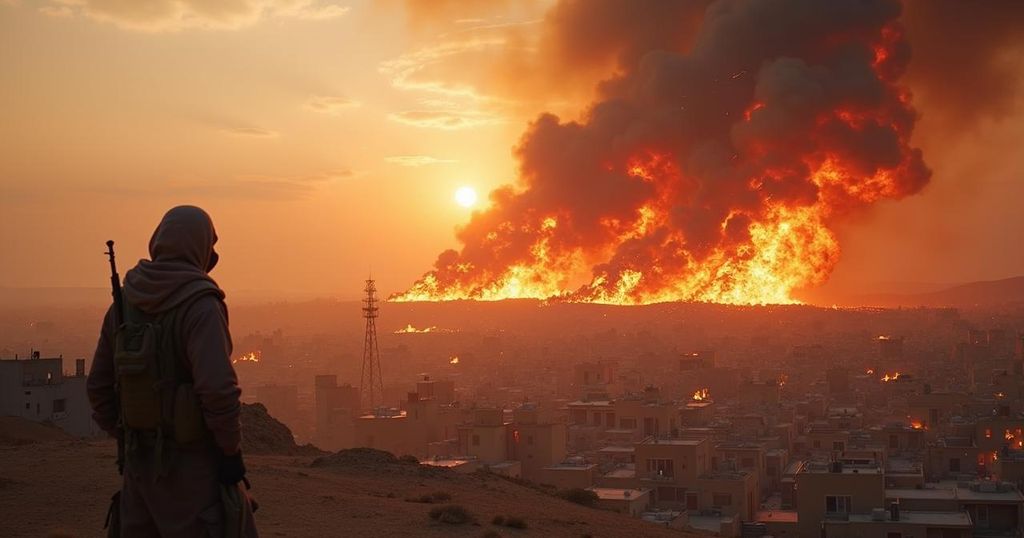On Tuesday, UN Secretary-General António Guterres called for an immediate ceasefire in the Middle East, condemning the growing violence that includes missile attacks by Iran and military actions by Israel against Hezbollah. The escalating conflicts have raised concerns for humanitarian conditions, particularly in Yemen, where critical ports remain operational yet face significant challenges. The situation demands urgent international attention to prevent further escalation and ensure aid delivery.
On Tuesday, the conflict in the Middle East intensified, prompting a call from UN Secretary-General António Guterres for an immediate cessation of hostilities. He expressed his condemnation of the worsening violence, stating, “I condemn the broadening of the Middle East conflict, with escalation after escalation. This must stop. We absolutely need a ceasefire.” The escalation includes a series of military actions, with Iran launching ballistic missiles against Israel shortly after Israeli forces initiated a limited ground incursion into southern Lebanon. Media reports indicate that approximately 180 missiles were fired at Israel, with most being intercepted. This development follows prior Israeli airstrikes in Beirut, which resulted in the death of Hezbollah leader Hassan Nasrallah. In the broader context, cross-border assaults between Israeli forces and Hezbollah militants have surged, coinciding with the ongoing Gaza war that is nearing the end of its first year. Nearly two decades ago, Israel and Hezbollah engaged in a significant conflict that led to the UN Security Council passing Resolution 1701 (2006), which aimed to secure peace by bolstering the UN presence in southern Lebanon. Aside from these developments, the UN has also reported on recent Israeli airstrikes in Yemen. These attacks were provoked by missile and drone assaults from Houthi rebels targeting Israeli cities. The Houthis’ aggression has exacerbated tensions in the region, affecting maritime trade routes and humanitarian efforts in Yemen, particularly at the critical port city of Hudaydah. Although the port remains operational according to UN assessments, its infrastructure has been stressed by ongoing conflict and limited power supply. On the humanitarian front, Julien Harneis, the UN Resident and Humanitarian Coordinator in Yemen, visited Hudaydah to evaluate the escalating food and nutritional needs of the population amid the ongoing crisis. UN Spokesperson Stéphane Dujarric confirmed that while both commercial and humanitarian supplies can still be received at the ports, power generation facilities are functioning at suboptimal levels, necessitating fuel distribution for health services. Israeli Ambassador Danny Danon addressed the media in response to these recent missile attacks, emphasizing Israel’s position amid the unfolding situations.
The Middle East has experienced a significant uptick in violence following intensifying conflicts between Israel, Hezbollah, and Iranian forces. This has led to cross-border engagements and increased militarization in areas like Lebanon and Yemen. The UN has been actively monitoring the situation, as the organization seeks to mediate between conflicting parties and protect humanitarian interests. In this context, events such as airstrikes and missile attacks reflect a broader regional conflict influenced by historical tensions, particularly those rooted in the ongoing Gaza war and the past hostilities between Israel and Hezbollah, which prompted a UN response nearly 20 years ago.
In conclusion, the situation in the Middle East has reached a critical juncture with escalating military actions by various parties, necessitating urgent calls for peace from international leaders such as the UN Secretary-General. As hostilities complicate humanitarian efforts, particularly in Yemen, it remains paramount that diplomatic efforts are reinforced to restore stability and protect civilian lives across the region.
Original Source: news.un.org






